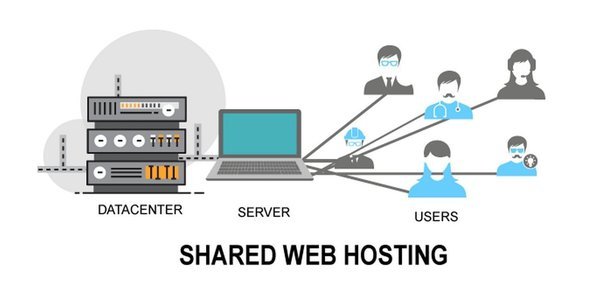When selecting a web hosting provider, understanding the concepts of bandwidth and storage is essential. These two factors play a critical role in the performance, accessibility, and overall experience of your website. This guide explores the significance of bandwidth and storage in web hosting, helping you make an informed choice about your hosting needs.
What is Bandwidth?
1. Definition and Importance
Bandwidth refers to the amount of data that can be transferred between your website and its visitors over a given period. It is essentially the capacity of your web hosting service to handle the volume of data that flows to and from your site. A higher bandwidth allocation allows more data to be transferred at once, accommodating more visitors and larger files without slowing down the site.
2. How Bandwidth Affects Website Performance
Bandwidth directly impacts how quickly your website loads for visitors. If your website experiences a traffic surge or contains large files, such as high-resolution images or videos, a higher bandwidth limit ensures that the site remains accessible and performs well. Insufficient bandwidth can lead to slow loading times, decreased user satisfaction, and potential downtime.
3. Managing Bandwidth Usage
Monitoring your bandwidth usage is crucial to avoid unexpected overage charges or service interruptions. Most hosting providers offer tools and dashboards that track your bandwidth consumption. If you anticipate a significant increase in traffic or media usage, consider opting for a hosting plan with higher bandwidth limits or scalable options to accommodate growth.

What is Storage?
1. Definition and Importance
Storage refers to the amount of disk space available on your hosting server for storing your website’s files, databases, and emails. It determines how much content you can upload and retain on your server. Sufficient storage is vital for maintaining all aspects of your website, including content management, backups, and email accounts.
2. How Storage Affects Website Management
The amount of storage you require depends on the size and complexity of your website. A blog with text-based content will need less storage compared to a site with multimedia elements like videos and high-resolution images. Proper storage management ensures that you have ample space for future growth, regular updates, and backups without encountering limitations.
3. Optimizing Storage Usage
Efficient storage management involves regularly monitoring and optimizing your site’s files. Use tools and practices such as file compression, image optimization, and regular cleanup to manage storage effectively. If you find that you are consistently approaching your storage limit, consider upgrading your hosting plan or exploring cloud storage solutions to handle additional data.
Bandwidth vs. Storage: Key Differences
1. Usage and Purpose
While bandwidth and storage are both critical for web hosting, they serve different purposes. Bandwidth is concerned with data transfer and website accessibility, while storage pertains to the capacity for saving files and data on the server. Understanding these differences helps in choosing a hosting plan that aligns with your website’s specific needs.
2. Impact on Website Performance
Bandwidth affects how quickly and efficiently your site can handle visitor traffic and data transfers. Insufficient bandwidth can lead to slow loading times and potential downtime during peak traffic periods. On the other hand, storage impacts how much content and data your site can hold. Running out of storage can prevent you from uploading new content or managing your site effectively.
Choosing the Right Bandwidth and Storage for Your Needs
1. Assessing Your Website’s Requirements
Determine your website’s bandwidth and storage needs based on factors such as expected traffic volume, content type, and future growth. For instance, an e-commerce site with high-resolution product images and frequent visitor transactions will require more bandwidth and storage compared to a simple blog.
2. Selecting a Suitable Hosting Plan
Choose a hosting plan that offers adequate bandwidth and storage to meet your current and anticipated needs. Many hosting providers offer scalable plans that allow you to upgrade as your requirements evolve. Evaluate different hosting options and compare their bandwidth and storage features to find the best fit for your website.
Conclusion
Bandwidth and storage are fundamental components of web hosting that significantly impact your website’s performance and functionality. Understanding their roles and how they affect your site helps in making informed decisions about your hosting needs. By choosing the right bandwidth and storage options, you can ensure that your website remains accessible, efficient, and capable of handling future growth.




